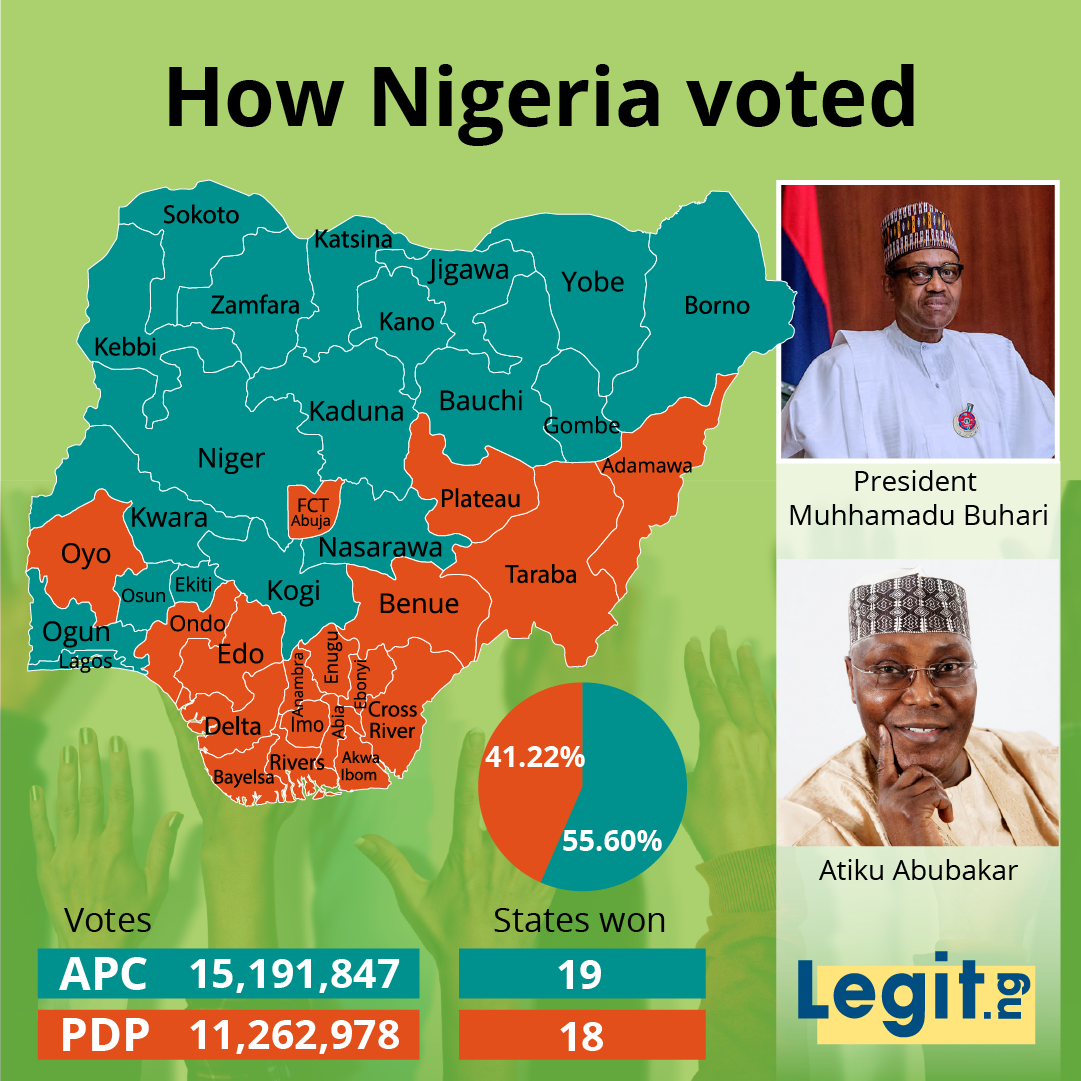The Independent National Electoral Commission (INEC) has presented the certificate of return to President Muhammadu Buhari and his running mate, Yemi Osinbajo, following the victory of the APC in the February 23 presidential election.
Speaking before jubilant supporters during the certificate presentation at the International conference centre in Abuja on Wednesday, February 27, the president thanked Nigerians for their unwavering support, Channels TV reports.
READ ALSO: International media react to Buhari’s re-election
Buhari promised to use his second term in taking Nigerians to the next level of governance. He also condoled with the families of those who lost their lives as a result of violence incidences in parts of the country during the elections.
He assured Nigerians that his administration would ensure an all-inclusive government, adding that he would ensue that Nigeria moves to the next level.
Legit.ng had reported that INEC chairman, Prof Mahmood Yakubu, early Wednesday, February 27, declared President Muhammadu Buhari as the winner of the presidential election held nationwide.
READ ALSO: PDP urges Nigerians to remain peaceful after election defeat
Buhari polled 15,191, 847 votes to defeat his closest rival, Atiku Abubakar of the Peoples Democratic Party (PDP) who polled 11,255, 978. The president-elect won in 19 states while his closest opponent, Abubakar won in 17 states.
Below are some photos of the event, credits: Femi Adesina - Facebook
Below is a graph of the presidential election result:

The presidential election result graph, credits: Legit.ng
Source: UGC
Meanwhile, the presidential candidate of the PDP, Alhaji Atiku Abubakar, has rejected the result of the election won by President Muhammadu Buhari.
Legit.ng reported that Atiku, who had kept mute since Monday, February 25, when the results showed that he was going to be the loser, described the election as a sham.
The former vice president said if he had lost in a free and fair election, he would have called the victor within seconds of being aware of his victory to offer not just his congratulations.
In a statement shared on Facebook, Atiku said the militarisation of the electoral process is a disservice to Nigeria's democracy and a throwback to the jackboot era of military dictatorship.
2019 Election: Presidential candidate, party leaders react to announced results| Legit TV
Source: Legit.ng
from Nigeria News today & Breaking Naija news ▷ Read on Legit.ng 24/7 https://ift.tt/2U76lum
via EDUPEDIA24/7
Comments
Post a Comment